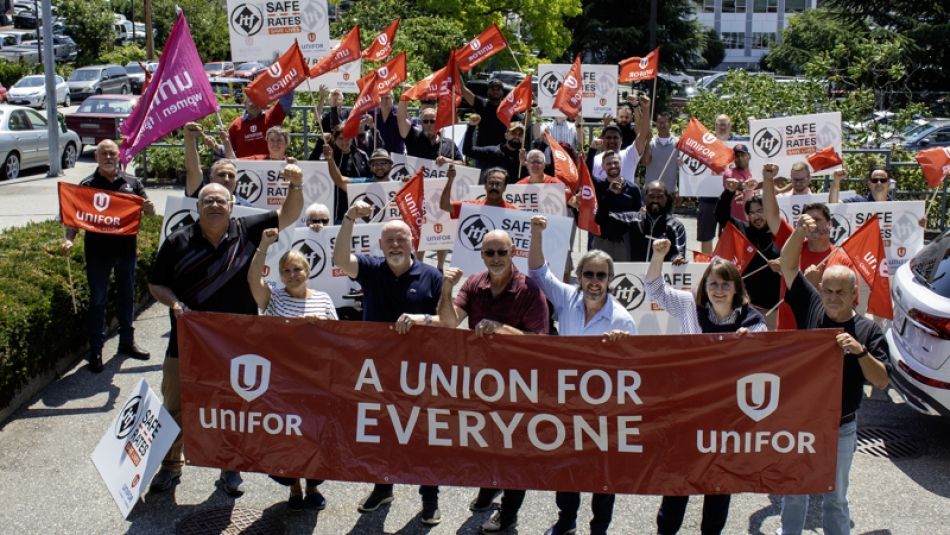
Share
Unifor is proud to support the International Transport Federation (ITF)’s global campaign to create awareness around safe rates, which improve wages and conditions for road transport drivers to make roads safer for all drivers, leading up to weeklong actions the last week of August.
“Governments at all levels and industry stakeholders have a vital role to play when it comes to protecting vulnerable workers in the road transportation sectors, particularly in the trucking and courier industries,” said Unifor National President Lana Payne.
“This campaign is about providing a living wage, especially since we’re knee-deep in an affordability crisis now, so drivers are not worried about making ends meet and can focus their attention on operating the vehicle and delivering packages safely.”
Unifor members will be holding rallies across the country during the week of action from Aug. 26 to Sept. 2 to support the ITF initiative, which coincides with the date a new federal transport reform legislation comes into effect in Australia.
Unifor has joined more than 50 trade unions representing road transport drivers around the world calling for Safe Rates systems to improve workers' rights and make roads safer.
“Having safe roads means ensuring sufficient levels of investment in the transport infrastructure, the vehicles, and wage for the operator,” said Unifor National Secretary-Treasurer Len Poirier.
“Recognizing operators as skilled professionals with a trade certification is one way to help establish a floor on wages and standards across the industry. The industry and federal government need to act now.”
More information will become available on Unifor’s Safe Rates campaign page closer to the date.
Evidence shows that pay increases of as little as 10% can reduce accidents by 30%. Unifor says that business models in road transport have become unsustainable and lead to labour abuses.
Some of the key issues Unifor has identified as obstacles to fair pay and safe work in Canada include DHL route shortening for owner-operators, which significantly reduces their pay, driver supply shortages in the school bus sector, and Cash In Transit companies that reduce workers per vehicle.
Drivers on the road also face intermodal trucking contracting-out to lower waged companies, a lack of equitable access to bathroom facilities for drivers and operators and increased insurance costs across the industry.
Unifor’s road transportation members also deal with cost of living/inflation higher than previously negotiated agreements and are likely to seek a cost-of-living adjustment in addition to the wage rates adjustment they need to cover increased costs of ownership of their vehicle.
The union wants to address misclassification in the industry through government regulation and enforcement and to make sure that employers are held accountable for the costs incurred by the owner operators.
Unifor is also monitoring issues coming out of automation, AI, and surveillance for drivers and costs associated with shifting regulations being downloaded onto owner operators.
Download Unifor’s new Safe Rates social media graphic and flyer.


